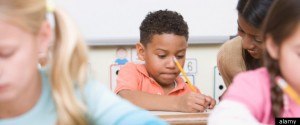The main goal of creative writing is to entertain the reader. The writer chooses the right words and style that will convey their thoughts and ideas appropriately. While everyone can be a creative writer because of their capacity to tell stories in a lively way, some children will need more than encouragement. As parents, we can be more proactive in supporting our children so that they can be successful in their writing.
Here are some tips you can use to help your children become better creative writers:
1. Creativity takes time.
While every child has the innate capacity to be creative, we have to remember that creativity takes on many forms. Writing needs higher-level thinking and success in writing is commensurate to the amount of time allotted to prepare for writing. Hence, parents must teach their children that brainstorming is an important part of writing. Encourage your children to spend time just jotting down their ideas. Don’t worry about the logic of the article yet; what’s important is that children get their thoughts on the different elements of their piece. Providing your children with a small journal they can carry in their bags will allow them to capture their thoughts wherever they are.
2. Writers need a conducive writing environment.
Becoming a creative writer needs passion and a lot of practice. Hence, one way to help your children become the best writer they can be is to setup a home environment where their writing materials are readily available, and where they can have the peace and quiet
 they need to focus on their task. Thinking of a good way to spend time with the family? Word games such as scrabble can go a long way!
they need to focus on their task. Thinking of a good way to spend time with the family? Word games such as scrabble can go a long way!
3. Use writing prompts for practice.
We are all familiar with “Once upon a time…”, but there are a thousand and one ways to begin a story. Take some time to help your child get started with the writing process by giving story starters or scenarios where they can base their stories from.
4. Use visual images for writing prompts.
Images from magazines, books and even store flyers are great ways to pique a child’s interest. You can use them as prompts, or simply for providing encouragement. If your child is having a writer’s block, you can start a conversation about an image first, before letting him write down some of the emotions he experienced while looking at the images. Images can also be used as a subject for a story or a poem.
5. Write first and then edit later.
One must always remember that writing is a process. Drafts are called such because the first article that your child will complete is not the final one. It will contain all the ideas, but often it will need to be edited so that the ideas build up to support the story. Hence, it is important that children are given more freedom with their thoughts especially in the first phase of writing. This way, they can write the ideas as they come. As parents, we can help remind children not to worry about grammar and spelling, until everything is completed, and we can help them keep up with their personal creative process. Some parents go as far as allowing their children to record the story first – writing down the story comes next, and editing comes way after.
Parents play an important role in ensuring their children’s success in writing. More than creating a home environment that is conducive to their needs; parents are also instrumental in providing children with the right habits that will enable them to develop into better writers.

